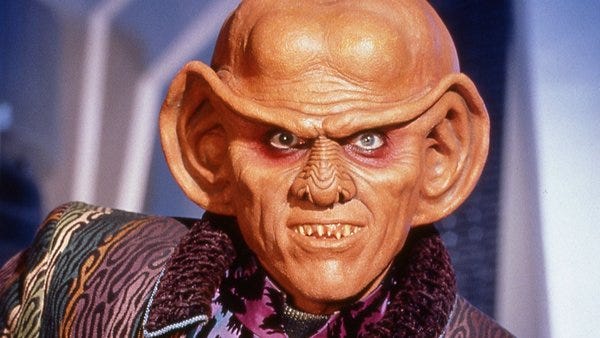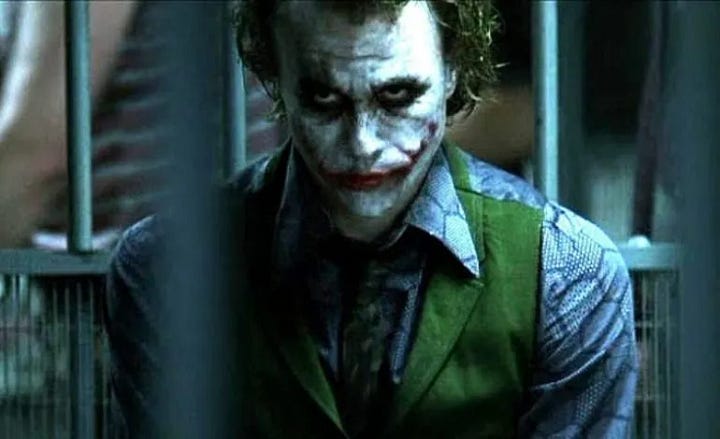A common theme in media is how people will respond when times get tough. The Joker in The Dark Knight plotted entirely around the idea that normal people will do things just as bad as the worst criminals when they are put in danger. Quark, the Ferengi bartender in Star Trek: Deep Space Nine, thought “hoo-mans” will behave on par with any “bloodthirsty Klingon” if they weren’t well fed and didn’t have access to their creature comforts. Even the annual Twilight Zone marathon has multiple episodes devoted to the idea that the slightest upset to the status quo will have us at one another’s throats and turn us into monsters. But there’s one glaring problem with this hypothesis: We’re still here.


The concept of “elite panic” is not new, and neither is how people respond to a crisis. Elite panic is the idea that those people in positions of power — both political and economic — believe the same things that Quark and the Joker do. They believe that during a natural disaster or other catastrophe, when we are cut off from their guidance, we cannot function. They believe that we will panic, which in turn makes them panic. They respond to disasters with increased security measures, as they did in the wake of Hurricane Katrina. Were there instances where an increased police presence post-Katrina would have been helpful? Absolutely. But it turns out that the cops should have been trying to find white supremacists out looking to shoot black people instead of looters taking things from a store.
While it’s not uncommon for politicians to play on people’s fears, the incoming oligarchic regime loudly proclaimed their disdain for immigrants and trans people on the campaign trail. And while it’s widely thought that the economy was the primary driver for trump’s victory, the continued rants against marginalized communities wasn’t a deal breaker for his supporters. But what it will do is set up a series of scapegoats for people to blame for the country’s woes. In fact, it’s already happening. “Transvestigators” went to work scrubbing the social media profile of a school shooter in Madison, WI. And this isn’t the first time. Instigators on the far right have been trying to blame trans people for mass shootings for the last several years.
It’s probably starting to become clear what elite panic has to do with our current political climate: Political and economic elites are going to use any upcoming hardship as an excuse to implement security measures. Climate change — and maybe some tariffs — will bring economic hardship. These hardships may spur protests, which would result in increased police presence and harsher penalties for protestors. Perhaps people will take to the internet to mobilize a resistance, or to organize, or to speak truth to power. But the world’s richest man didn’t buy Twitter for no reason, right? These online spaces are controlled by people with a vested interest in maintaining their power base and I have a hard time believing they wouldn’t take actions on their various platforms to ensure that power (again, it’s almost certainly already happening).
The key thing to remember is that these people, the ones who assume they are our betters and that we can’t get by without them, are wrong. They are wrong in a very proven and historical way. The state, as a controlling mechanism of government, has been around for 12,000 years give or take. Meanwhile, most estimates say that humans have been in this physical form for more than 100,000 years. And even during the centuries where the state was a major form or social structure, there were large portions of the population that did not live in those states. It turns out that history is biased towards state-centric thoughts since that’s where most of the records were kept.
Moreover, there plenty of examples in our modern world of regular people doing good on their own accord without a need for intervention by elites. During the bombings of London in WWII, people found common cause in the suffering and uncertainty. They came together and provided for one another. Incidents of people seeking mental health services declined because they were bound by a common purpose in caring for one another. Even in the aftermath of Hurricane Katrina, local gangs helped direct federal emergency management personnel on where vital supplies were needed.
So why say all this? I suppose it’s entirely possible that over the next few years the state will be treating people with ambivalence at best and open antagonism at worst. They might tell you that the people around you can’t be trusted. They could tell you that the security measures being undertaken by the state are necessary for your protection. It’s possible that they say the gradual takeover of the various media platforms are in the interest of maintaining free speech, all while making it impossible to voice dissent over the bots and trolls. Beyond that, forces could be deployed against citizens to varying degrees in places throughout the country. And the whole time you will be told that it’s justified in the name of peace, or law and order. Or to uphold truth, justice, and the American way.
But they’re wrong. And they always have been. Through it all, we’ve always had each other. We wouldn’t be here today of this wasn’t true. If a minor upset to the norm was all it took to turn humanity against one another, there’s no way we could have gotten this far. Hardships are coming, either because of elites or despite them. But the only way forward is restoring our ability to depend on each other. And if the elites can overcome their fear, distrust, and panic, then maybe there’s a place for them, too.



